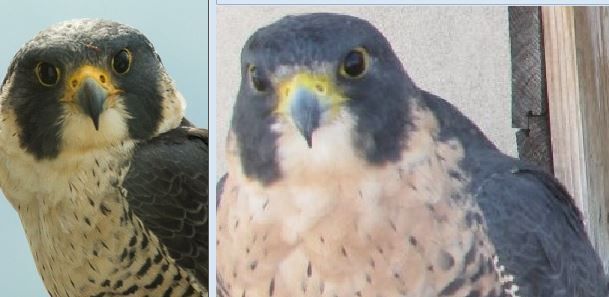The Key to a long life, peregrine Dorothy has the answer: by Kate St. John
Though juvenile mortality is high, birds are amazingly long-lived if they survive to adulthood. What’s the key to their longevity?
In 2011 scientists at the National Evolutionary Synthesis Center in Durham, NC crunched 27 years of data on more than 1,200 birds to examine mate selection, fertility and aging. They used the rich data set on blue tits, a bird similar to our chickadees, studied on the island of Corsica since the late 1970′s. Aging was easiest to see among female blue tits because their fertility dropped if they lived long enough. They laid fewer eggs and laid them later in the season than females in their prime.
Interestingly the study found that females remained in their prime longer if they had good mates. Their fertility did not wane so soon, they aged more slowly. This was especially true for the ladies whose mates became fathers at an early age.
The good males were better helpers during the nesting season. They shared parenting duties and were solicitous for the females’ well-being. They brought food to their ladies and eased the burden of nest building, incubation and child rearing. The team’s scientists conjectured that the males who became fathers at an early age were not only more experienced at this but were also healthier.
The good mate scenario sounds a lot like Dorothy and E2′s relationship. Every nesting season we see E2 on camera bringing food to Dorothy and the kids, begging to take over incubation duties, and sometimes refusing to give them up. Even in the off season, those of us who watch this peregrine pair see E2 bring food to Dorothy throughout the year. What a guy!
The key to a long life is a good mate.
Dorothy says, “Thank you, E2.”

Dorothy, photo by Peter bell

Dorothy/Beauty